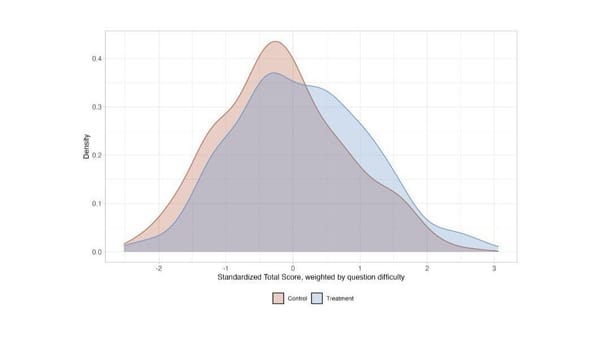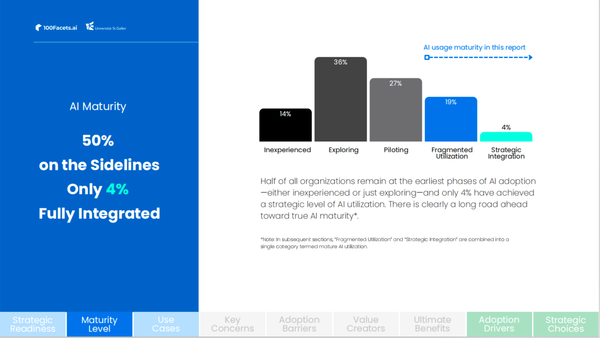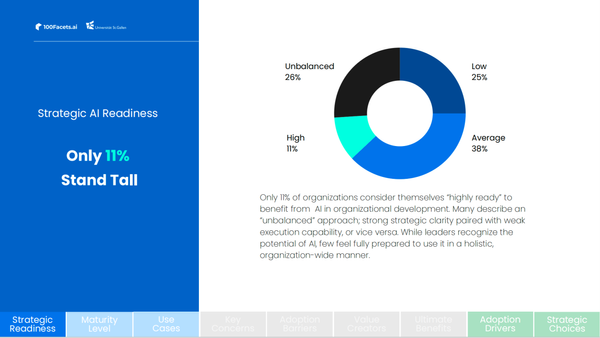From “No AI” to AI Coaching: How Organizational Readiness Shape Use Cases

One of the findings of our latest research between 100facets.ai and University of St.Gallen (HSG) – Executive School , covering 155 senior leaders, was a direct correlation between an organization’s readiness for AI and the sophistication of the use cases they deploy. Among low-readiness companies, nearly 40% report no AI usage. By contrast, high-readiness firms are far more likely to invest in advanced applications like AI-powered coaching (26%) rather than sticking solely to content personalization.
Why AI Readiness Matters
Readiness isn’t just about budget or technology. It’s a mix of executive alignment, data infrastructure, and a workforce open to experimentation. Based on our extensive research, we identify 8-A to win with AI, that gives organizations the two necessary wings of "Strategic Clarity" and "Execution Capability".

When readiness is low, leadership development stalls at the concept phase—teams either do nothing or default to “basic pilot” territory. In transcripts relevant to these data points, panelists commented that low-readiness organizations often lack clarity on ROI, seeing AI as a shiny gadget rather than a strategic enabler.
AI-Coaching: An example of how AI can create more value, if done right
AI coaching stands out as a high-value intervention, providing leaders with on-demand feedback, personalized growth plans, and real-time performance insights. Rather than replacing human coaches, it augments them—automating routine follow-ups or progress tracking so professional coaches can focus on deeper human dynamics. According to the data, only organizations that have built a certain foundational capacity are comfortable moving beyond simple content curation.
However, as I explained in details in my previous article (see here), the hype around Ai-coaching is not usually leading to long-term engagement of leaders and most solutions fail to engage to leaders beyond 1-2 days! This is unless you pay attention to behavioral elements of solution design for an engaging AI-coaching experience, instead of commoditized Gen-AI bot solutions.
Cultural Shifts Ahead
As we discussed in our panel of expert conversations on 11th March, the jump to AI coaching forces a cultural evolution. HR can’t simply “plug in” an app; it must address how leaders react to continuous digital feedback and integrate those insights into daily practices. This can trigger resistance if readiness is weak, but it offers transformative outcomes for those who embrace it.
So What?
Want to unlock AI’s higher-potential use cases like dynamic leadership coaching? First, address your readiness shortfalls—be thy on Strategic Clarity Wing or Execution Capability Wing of the 8-A of AI. The difference between “no AI at all” and real-time coaching support is far more than a budget line; it’s about a proactive mindset that sees AI as integral to leadership development. If your organization is still paralyzed at step zero, consider how incremental growth in readiness can open doors to advanced, game-changing possibilities.




